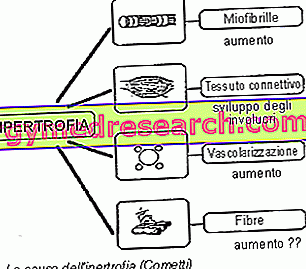
What is Viagra?
Viagra is a medicine that contains the active substance sildenafil, and is presented as blue diamond-shaped tablets (25, 50, or 100 mg).
What is Viagra used for?
Viagra is used to treat adult men with erectile dysfunction (also called impotence), which is the inability to achieve or maintain an erection sufficient for satisfactory sexual activity. For Viagra to work, sexual stimulation is required. The medicine can only be obtained with a prescription.
How is Viagra used?
The recommended dose of Viagra is 50 mg taken as needed about an hour before sexual activity. If Viagra is taken during a meal, its effect may be delayed compared to fasting. Depending on the efficacy and side effects, the dose can be increased to 100 mg or reduced to 25 mg. Patients with liver problems or severe kidney problems should start treatment with a dose of 25 mg. It is recommended not to take more than one tablet a day.
How does Viagra work?
The active substance in Viagra, sildenafil, belongs to a group of medicines called phosphodiesterase type 5 inhibitors (PDE5). It works by blocking the enzyme phosphodiesterase which normally reduces the levels of a substance called cyclic guanosine monophosphate (cGMP). During normal sexual stimulation the penis produces cGMP which causes the relaxation of the spongy tissue of the penis (cavernous bodies), allowing the inflow of blood into the corpora cavernosa, which produces an erection. By blocking cGMP degradation, Viagra restores erectile function. In order to get an erection, however, sexual stimulation is always necessary.
What studies have been carried out on Viagra?
On Viagra, four main studies were carried out in 1, 690 men aged between 19 and 87 years, by comparison with placebo (a dummy treatment) for a period between 12 and 26 weeks. Of these studies, two were fixed-dose (patients were always given 25 mg or 50 mg or 100 mg) and two were variable-dose (patients were initially given 25 mg and then, depending on their response, could pass at 50 or 100 mg). Furthermore, studies have been performed on patients with spinal cord injuries and diabetic patients. The main measure of effectiveness was the ability to obtain and maintain an erection, which was recorded in a special questionnaire completed at home using an evaluation system based on a 5-point scale (where 5 corresponds to the best result).
What benefit has Viagra shown during the studies?
Viagra was significantly more effective than placebo in all studies. In the questionnaire, the score for the question on how often the patient was able to have sexual intercourse increased from 2 without treatment to 3 or 4 with Viagra 50 mg. In studies with fixed doses, the percentage of patients who reported an improvement was 62% (25 mg), 74% (50 mg) and 82% (100 mg), compared to 25% reported with placebo.
What are the risks associated with Viagra?
The most common side effect (seen in more than 1 patient in 10) is headache. For the full list of all side effects reported with Viagra, see the package leaflet.
Viagra should not be used in people who may be hypersensitive (allergic) to sildenafil or another excipient, or in cases where sexual activity is not recommended (eg in men who have serious heart problems, such as unstable or severe angina). heart failure). Nor should it be taken by people who have had a loss of vision due to nerve optic blood flow problems (non-arteritic anterior ischemic optic neuropathy - NAION). Viagra should not be taken with nitrates (a type of medicine used to treat angina). Because Viagra has not been studied in patients with severe liver problems, hypotension (low blood pressure), recent stroke, or myocardial infarction (heart attack), or with established hereditary eye disorders, such as retinitis pigmentosa, these patients should not use it.
Why has Viagra been approved?
The Committee for Medicinal Products for Human Use (CHMP) decided that the benefits of Viagra outweigh its risks for the treatment of men with erectile dysfunction. The Committee therefore recommended that the medicinal product be granted marketing authorization.
More information on Viagra:
The European Commission granted a marketing authorization valid throughout the European Union to Pfizer Limited on 14 September 1998 for Pfizer Limited. The authorization was renewed on September 14, 2003 and September 14, 2008.
For the full evaluation (EPAR) of Viagra, click here.
Last update of this summary: 09-2008.



